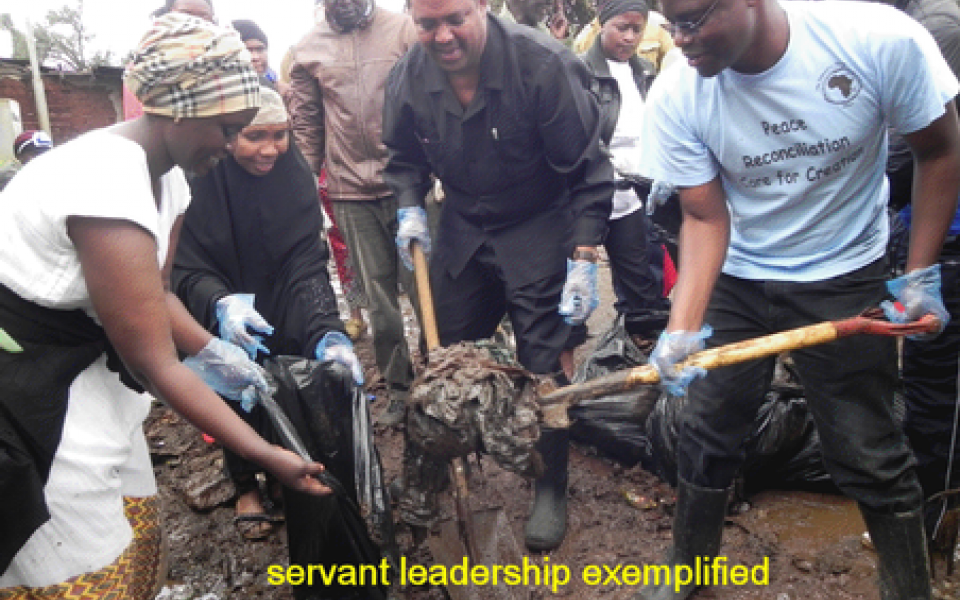
Kibera, a settlement about five kilometers (3.1 miles) southwest of Nairobi, is Africa’s second-largest informal settlement, including as many as 270,000 people in ten villages. With an estimated population density of more than 2,000 people per hectacre – and hardly any sanitation facilities to support them – it is also one of the most crowded and polluted.
Although some of Kibera’s villages have water, none are served by electricity or sewer lines. Most of Kibera’s toilets are shallow pits near the river. Each is shared by roughly 50 to 100 people.
Those conditions did not deter the more than 300 villagers who took part in the Nov. 3 clean-up, led by Ambassador Mussie Hailu (above, center), URI’s Regional Coordinator for Africa, and the Rev. Benedict Ayodi, OFM, Cap., Kenya director for the Damietta Initiative, an interfaith peace enterprise founded by the Order of St. Francis.
“While these needs are overwhelming, we used the opportunity to address them by our means, and reach out for interfaith dialogue and care for the environment,” said Nyambura Mundia Annirene, an administrator for URI Africa’s Kenya office.
The group conducted a trench clean-up, planted trees, and joined local village administrators for a discussion of nonviolent practices and the need for community-based initiatives.
In addition, Ambassador Hailu had the opportunity to meet the “young mothers of Kibera,” a group of mostly teenaged mothers who have worked hard to return to school. Ambassador Hailu pledged to help the young mothers found a day care center for their children, and suggested that their efforts could be a model for other URI Cooperation Circles focusing on women’s and children’s issues, particularly in developing countries.
